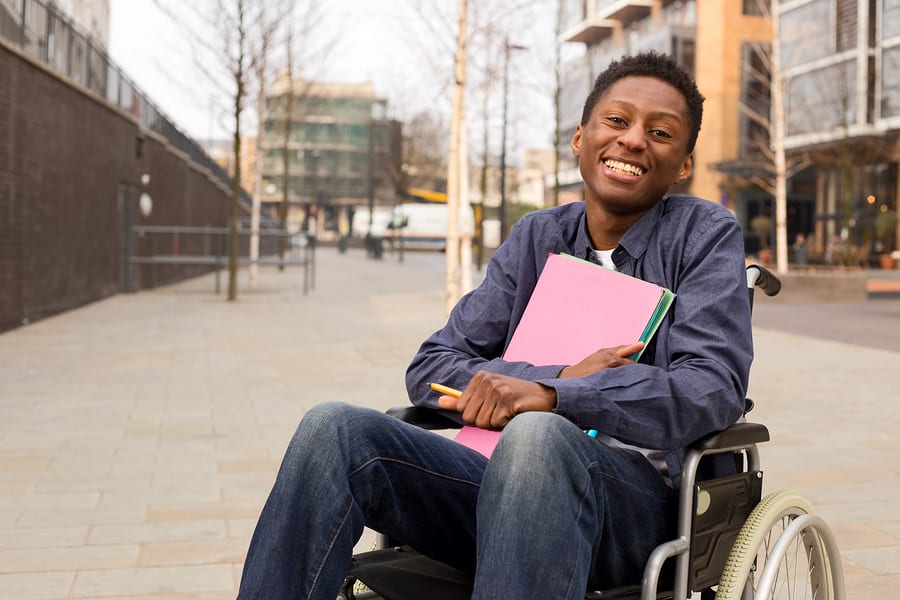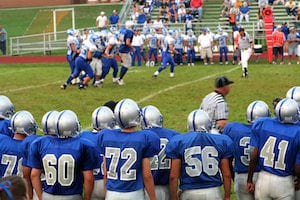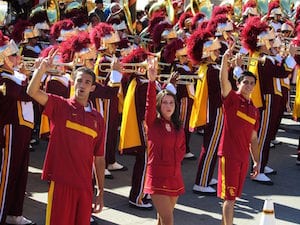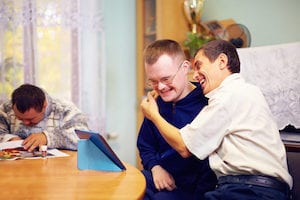4 High School Activities Every Teen With CP Should Try

High School and Cerebral Palsy
A few weeks ago, I went to see a high school play that my friend’s daughter was performing in. The production was very good. But, the thing I loved most about it was watching the students on stage after the play ended.
It was the last performance of the season, so the entire cast was hugging each other and giving flowers to the teachers who helped put on the show. Many of the performers were seniors, so it was their last performance as a high school student. It was a touching moment to witness.
After the show, I started thinking about my own high school experience. It’s been about 30 years since I was a high school student. During those four years, I was given a glimpse into what high school is like for a student with a disability, such as cerebral palsy (CP).
Now, I wondered, what's it like to be a high school student with cerebral palsy today?
As a student with CP, I wasn’t able to form close friendships because I wasn’t involved with any clubs, plays or sports. Besides that, my high school was located twenty miles from my house. This limited my ability to stay after school to participate in various activities.
In high schools today, I hope and believe it’s a little easier to make friends than it was 30 years ago. With improvements such as full-inclusion classrooms, special education programs and more, there are countless ways that any student can make friends.
Parents, I have 4 suggestions on how your teen can make the most of their high school experience:
1. Manage Stats for a Sports Team

If your teen is passionate about sports, this is a great way to get involved with after-school activities.
For high school sports such as football or baseball, try talking with the coach about having your teen keep track of the team's statistics.
I knew a guy in college who did the stats for his high school football team. The players included him in everything. He was expected at every game and most of the practices. He loved it because he was a part of the team.
Even if your child is physically limited with playing sports, there’s a ton of other ways to get involved from the sidelines. Set up a meeting with the athletic director from your district to see if this would be a good fit for your teen.
2. Try Out For a Play

So, what if your teenager likes theater instead of sports? Not a problem!
Performing in a play can be a life-changing experience for a teen with CP. Fortunately, trying out for a high school play is not like auditioning for a Broadway production.
They can first audition for the play. If they don't get a part, they can talk to the theater director about other ways to help out. This often include things like creating set decorations, helping with practice performances and giving stage directions during the live show.
By joining a theater group, your teen will be able to meet new friends and teachers at school. Also, when everyone comes out at the end of the play to take a bow, your teenager will be recognized too. This will make them feel proud and accomplished, which should be any parent’s ultimate goal.
3. Join the Homecoming Court or Committee

In recent years, I’ve seen quite a few stories about a student with a disability being named homecoming king or queen. At first I thought, oh how corny. But then, I thought again.
The entire school voted for this person. It must feel incredible to be selected as homecoming king or queen – whether you have CP or not.
If your teen doesn’t want to join a sport’s team or school play, try getting them involved with the homecoming committee. Even if they’re not interested in being named a winner, the homecoming committee is usually a large group of students who help out with various tasks for the yearly dance.
Not only will they be able to meet new friends their age, but they will also attend the dance knowing that their hard work helped make it all possible. And who knows, maybe they’ll even be crowned king or queen at the end of the night!
4. Connect With An Online Community

With social media and the internet, making friends now seems a little bit easier than when I was in school. Today, we are blessed with everything we need — right at our fingertips.
As you may know from my earlier posts, I have a YouTube channel where I post videos about my CP. I also use YouTube to find other people with cerebral palsy who create similar types of inspirational videos.
If your teenager is more comfortable getting involved with online support groups, the possibilities are endless. This is a good option for teens who are nervous or anxious about meeting new friends, or for those with coexisting conditions that limit speech or hearing.
The internet can be overwhelming. If you’re looking for a place to start, we recommend:
- YouTube channels from CP bloggers, such as Zach Annes
- Facebook groups for people with CP, such as "Adults with CP and Parents Are Coming Together!"
- Online discussion boards for CP, such as this support group
Talking To Your Teen About High School
The high school experience can be rough for any student. For those with CP, high school is that much more of a challenge.
Socialization is a major part of being in high school. Try talking to your teenager about what they would like to accomplish in high school. Then, come up with a list of ways you can help them meet or even exceed those goals. If they don’t want to join a sport’s team or play, talk with them about joining the homecoming committee. If that doesn’t interest them, there are a number of other activities to try, such as the chess club, photography club, student volunteer club and more.
And, if they’d rather meet friends online, that’s fine too! The important thing is that they have someone their age to talk to when they experience obstacles or successes.
High school is a period of your life that you can only experience once. Parents, you have to help your teenager do everything that they can in high school. If you allow them to see all of their potential during high school, their future opportunities will be endless.
